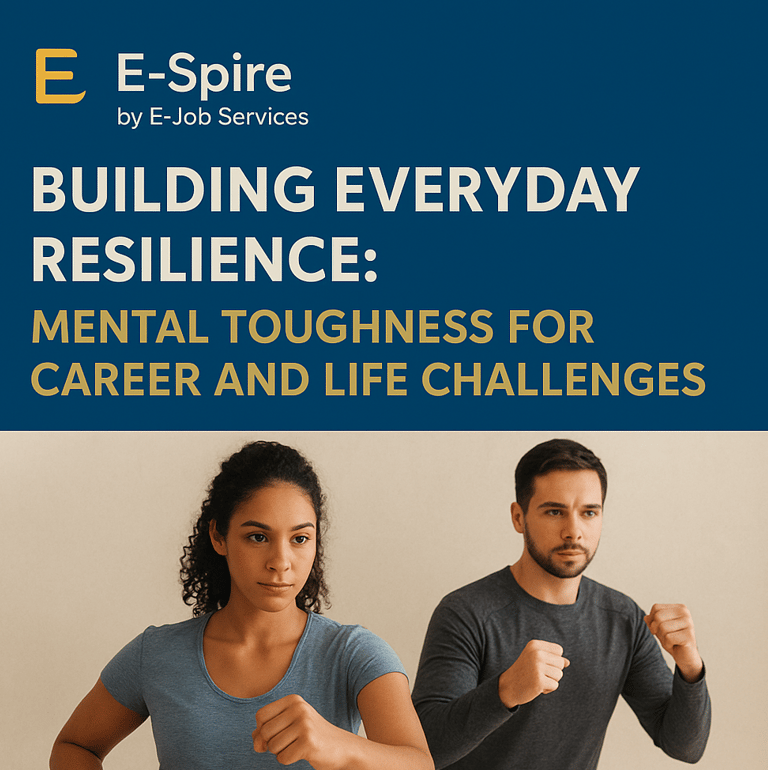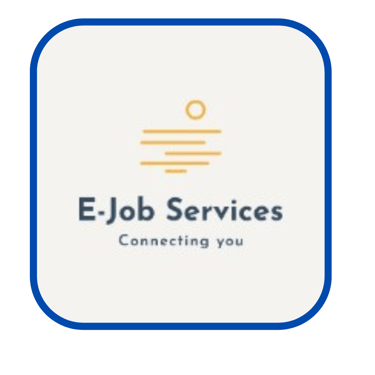Building Everyday Resilience: Mental toughness for career and life challenges
E-Spire by E-Job Services explores how everyday resilience can help you handle career setbacks, life challenges, and workplace stress. Learn 8 practical strategies to build mental toughness and stay grounded, even when life doesn’t go as planned.
HOLISTIC LIFE & PERSONAL GROWTH
E-Job Services
10/19/20252 min read


Building Everyday Resilience: Mental Toughness for Career and Life Challenges
Life and career paths rarely follow a straight line. Unexpected layoffs, failed projects, personal loss, or workplace stress can knock us down—but resilience helps us rise again. Everyday resilience isn’t about ignoring pain or pretending challenges don’t exist. It’s about developing the mental toughness to adapt, recover, and keep moving forward with purpose.
What is Everyday Resilience?
Resilience is the ability to bounce back after setbacks, stay grounded under pressure, and maintain focus despite obstacles. According to the American Psychological Association (APA), resilience is not a personality trait; it’s a set of skills and behaviors that anyone can build over time.
💪 Practical Ways to Build Mental Toughness
Here are eight proven strategies to strengthen your resilience daily:
Practice Self-Awareness – Identify your stress triggers and emotional responses. Journaling or mindfulness can help you notice patterns before they escalate.
Reframe Negative Thoughts – Instead of “Why me?” try “What can I learn from this?” Positive reframing boosts problem-solving and reduces anxiety.
Strengthen Social Connections – Friends, family, mentors, or professional networks provide support and perspective when challenges feel overwhelming.
Focus on What You Control – Energy spent on uncontrollable factors drains mental strength. Shift attention to actions you can influence.
Set Small, Realistic Goals – Break big problems into manageable steps. Small wins build confidence and momentum.
Maintain Healthy Habits – Regular exercise, quality sleep, and balanced nutrition improve mood, focus, and stress tolerance.
Seek Help When Needed – Therapy, coaching, or support groups are not signs of weakness—they’re tools for growth.
Celebrate Progress, Not Perfection – Recognize how far you’ve come, even in small ways. Growth often happens quietly before it shows outwardly.
Global Perspective
A 2023 World Health Organization (WHO) report found that stress-related illnesses affect over 60% of employees worldwide, with Caribbean and U.S. workers reporting high burnout rates due to economic pressures and workload demands. Building resilience is no longer optional—it’s a professional survival skill.
Key Takeaway
Resilience is like a muscle: the more you train it through daily habits, the stronger it becomes. Whether you’re navigating a career transition, handling rejection, or balancing life’s demands, mental toughness gives you the flexibility to adapt and thrive—no matter what comes next.
References
American Psychological Association. (2024). Building your resilience. Retrieved from www.apa.org/topics/resilience
World Health Organization. (2023). Workplace mental health report. Geneva, Switzerland.
Harvard Business Review. (2022). How to build resilience in challenging times.
